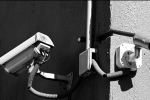September 20, 2011
The Messy Middle
Four months. It seems to be the right interval. Is there anything biblical about this number? Nope. Anything magical or theoretical? No. Arrived at by trial and error, it’s just the timeframe that emerged for planning my life these days. I can handle four months chunks.
Here’s the deal: I’m in transition. Thankfully my job is stable and fulfilling, but so much else is shifting: home life, interests, church community, social networks…. It started a few years ago. I’m at that part in a change process some call the “liminal” phase. My term for it: the messy middle.

Last week I found myself in a “messy middle” episode, beset with frustration, anger, and disappointment. While I would rather deny these unpleasant emotions, they kept rearing their heads. What was I frustrated about? I was sick of change, and unable to figure out how to get what I wanted, or even know what I wanted. Acting like a psalmist, I lamented: how long will this last, O God?! Where is Your help?!
But with prayer, awareness, supportive friends, and my spiritual practice of journaling, I’ve gotten better at dealing with transitions. I’m able to recognize these emotions, honor them, let them go. A deeper spirit and wider perspective approach, then settle into my innermost being. I remember that life is much bigger than this moment, than the present constraints. God’s vision is beyond what I can fully see. Last week, with renewed humility, I finally admitted that I don’t know exactly what the future will hold. I realized I was pushing too hard to figure out the whole picture. It just isn’t possible now…yet.
Once I let go of a grasping, frustrated stance, I was able to see my situation more clearly. I’m traveling along a good path, that much I trust. Looking forward, I expected my final destination to be revealed, but the distant future is too foggy. Looking backward, however, I identified a pattern of mini-journeys along the way, each a four month interval. The summer, the past winter, and even the prior fall. In each episode I could see those little pictures of the path. In each I committed to people and places, set priorities and a schedule, and paid attention to what was revealed along the way. And grieved a bit for things I was leaving behind.
This seems to be the nature of transition. From my own experience, I offer the following pattern of practice. Are you seeing similar patterns through your changes? As a congregation, leadership team, or community, how are making your way through the messy middle?
- Keep the long-term vision – as much of it as you can see – ever before you. Lean into it, but don’t try to force it.
- Pick a timeframe for the future that you can see, probably short-term, and plan for it. Commit to engaging it intentionally.
- Where possible, make one or two concrete decisions or actions, however small, toward the long-term vision.
- Observe what emerges.
- Repeat.





